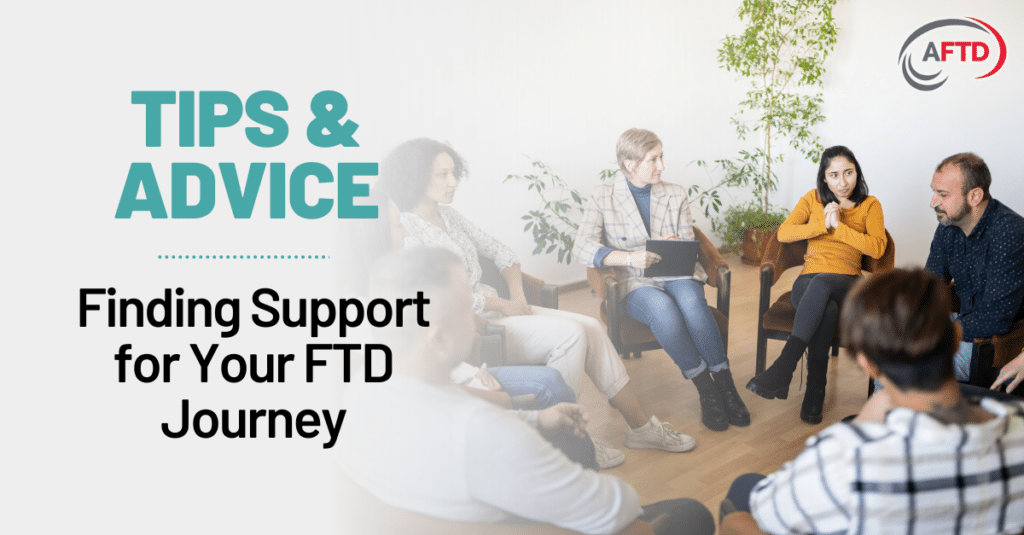Tips & Advice: Finding Support for Your FTD Journey

Isolation is common for persons diagnosed, care partners, and family members on the FTD journey, as FTD is a disease relatively few people have heard of and even fewer truly understand. The stigma surrounding symptom-related behaviors and lack of awareness about the disease leads many to feel alone. But loneliness doesn’t have to be a part of the journey: not only are there others who share your experience, but many of them can also help you manage aspects of life with FTD.
AFTD-affiliated support groups are a valuable resource for avoiding isolation during your journey. They provide an outlet to vent your emotions, a community of peers with their own lived experiences you can draw on for guidance and local resources, and a safe space to gain an understanding of what you’re going through. Topics discussed in a support group will vary by meeting and by group, but typically include managing symptoms, adapting to relationship changes, prioritizing self-care, and navigating grief. Anything discussed in a support group stays between members.
Support groups typically meet once a month, though this can vary by group. While some support groups meet in person, many meet virtually via Zoom or similar apps. Even if there are no in-person support groups in your area, there may be a virtual option for you.
In addition to local support groups, AFTD oversees specialized, nationwide groups for those caring for a parent with FTD, parents with kids at home who is caring for a spouse or partner, a group for those who are diagnosed with FTD, and primary caregivers of someone living with ALS and FTD among others.
If you’re interested in finding a support group, you can start your search on AFTD’s website. Select your state from the drop-down menu, find the group that works best for you, and contact the support group volunteer. You can also contact AFTD’s HelpLine to discuss support group options.
If you’d like to know more about the experience of being in a support group, read this Help & Hope interview or watch this panel from AFTD’s 2022 Education Conference.
If a live support group doesn’t meet your current needs, you might consider joining AFTD’s closed Facebook group for people affected by FTD, which provides a similarly structured, safe environment for people on the FTD journey to share their thoughts and find support.
If you are interested in starting a support group in your community, AFTD can support you. Fill out a volunteer form, and our staff will reach out to you to discuss your interests.
If you aren’t sure which option is right for you, need help finding a support group in your area, or want to discuss alternatives for finding support, AFTD’s HelpLine can help. Our licensed social workers understand what it is to live with FTD and offer support, information, and resources. Contact the HelpLine at 1-866-507-7222 or info@theaftd.org.
By Category
Our Newsletters
Stay Informed
Sign up now and stay on top of the latest with our newsletter, event alerts, and more…
